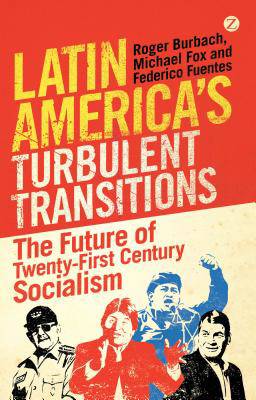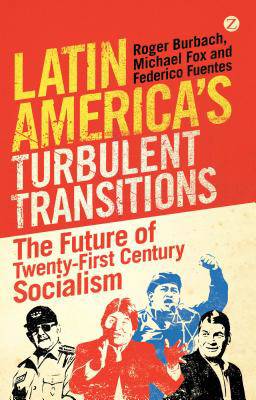
- Afhalen na 1 uur in een winkel met voorraad
- Gratis thuislevering in België vanaf € 30
- Ruim aanbod met 7 miljoen producten
- Afhalen na 1 uur in een winkel met voorraad
- Gratis thuislevering in België vanaf € 30
- Ruim aanbod met 7 miljoen producten
Zoeken
Latin America's Turbulent Transitions
The Future of Twenty-First Century Socialism
Roger Burbach, Michael Fox, Federico Fuentes
Hardcover | Engels
€ 203,95
+ 407 punten
Omschrijving
Over the past few years, something remarkable has occurred in Latin America. For the first time since the Sandinista Revolution in Nicaragua in the 1980s, people within the region have turned toward radical left governments - specifically in Venezuela, Bolivia, and Ecuador. Why has this profound shift taken place and how does this new, so-called Twenty-First-Century Socialism actually manifest itself? What are we to make of the often fraught relationship between the social movements and governments in these countries and do, in fact, the latter even qualify as 'socialist' in reality?
These are the bold and critical questions that Latin America's Turbulent Transitions explores. The authors provocatively argue that although US hegemony in the region is on the wane, the traditional socialist project is also declining and something new is emerging. Going beyond simple conceptions of 'the left', the book reveals the true underpinnings of this powerful, transformative, and yet also complicated and contradictory process.Specificaties
Betrokkenen
- Auteur(s):
- Uitgeverij:
Inhoud
- Aantal bladzijden:
- 224
- Taal:
- Engels
Eigenschappen
- Productcode (EAN):
- 9781848135680
- Verschijningsdatum:
- 1/02/2013
- Uitvoering:
- Hardcover
- Formaat:
- Genaaid
- Afmetingen:
- 138 mm x 223 mm
- Gewicht:
- 367 g

Alleen bij Standaard Boekhandel
+ 407 punten op je klantenkaart van Standaard Boekhandel
Beoordelingen
We publiceren alleen reviews die voldoen aan de voorwaarden voor reviews. Bekijk onze voorwaarden voor reviews.








